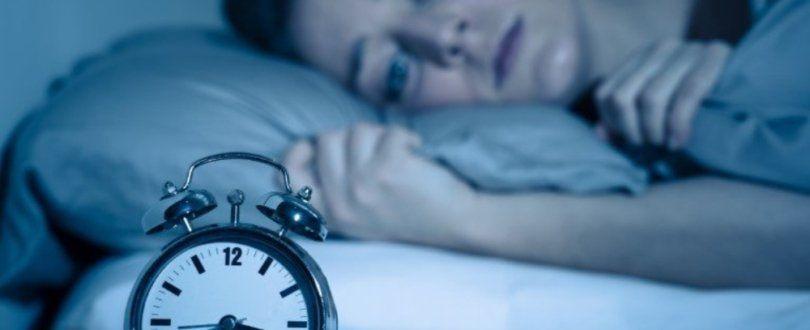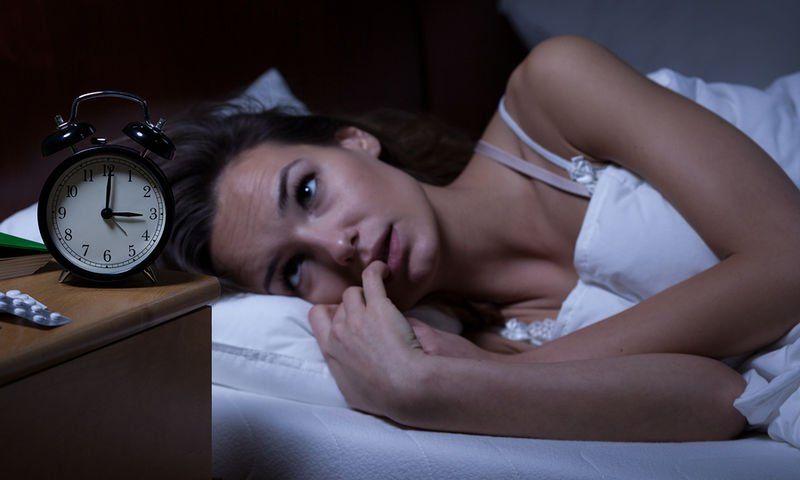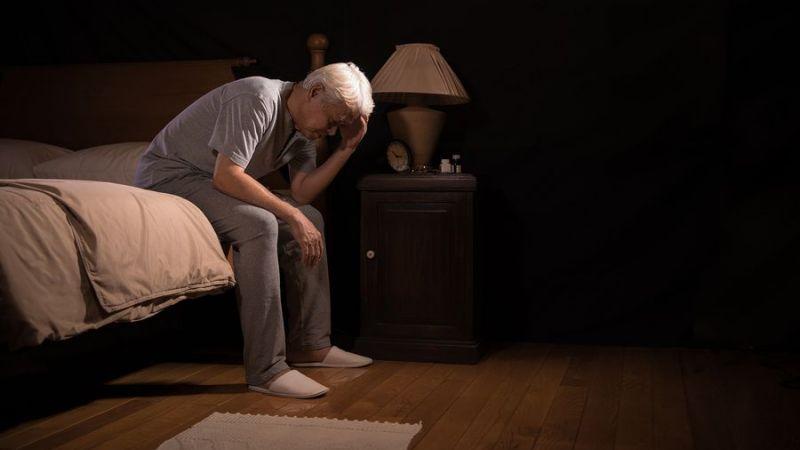
Almost everyone has experienced feeling like a zombie after a night of little or no sleep. Lack of sleep Even after just one night without enough rest, we may feel sleepy during of the day with slow thinking, lack of energy and irritable mood.
Sleep deprivation is when you don't get the sleep you need, and it's estimated to affect about one-third of American adults, a problem that's only gotten worse in recent years.
Lack of sleep directly affects how we think and feel. While the short-term effects are more noticeable, chronic sleep deprivation can increase the long-term risk of physical and mental health problems.
Lack of sleep
To avoid these problems, it is important to avoid sleep deprivation. Understanding this condition, including its causes, symptoms, diagnosis and treatment can put you in a better position to ensure you get the sleep you need.
What is sleep deprivation?
The term sleep deprivation refers to less than the required amount of sleep, which, for adults, ranges from seven to nine hours2 of sleep per night. Children and teenagers need even more sleep than adults.
Are all definitions of sleep deprivation the same?

In sleep medicine, sleep deprivation is defined by sleep duration, which is the total time a person spends asleep. But in reality, being well rested is about more than how many hours you sleep. As a result, the terms lack of sleep or sleep deficiency3 are more often used to describe factors that reduce the amount and/or quality of sleep and prevent a person from waking up refreshed.
In this way, sleep deprivation has a wider application. For example, a person who sleeps a total of eight hours but has many awakenings that fragment their sleep may be getting insufficient sleep, even though their sleep duration technically meets the recommended amount.
This terminology may differ from everyday conversation in which the term sleep deprivation may be used in a broader sense that refers to poor sleep overall rather than just total sleep duration.
Even in the medical field, studies may use different technical definitions of sleep deprivation, with some classifying it as seven hours of sleep or less, while others use six hours as the cutoff.
What causes sleep deprivation?
Many factors can cause or contribute to sleep deprivation, including poor sleep hygiene, lifestyle choices, work commitments, sleep disorders, and other medical conditions.
Sleep deprivation is often due to voluntary choices that reduce available sleep time. For example, a person who decides to stay up late to watch a TV series may experience acute sleep deprivation. An inconsistent sleep schedule can make these decisions easier and make them feel less purposeful in the moment.
Work commitments are another common factor that contributes to sleep deprivation. People who work multiple jobs or long hours may not have enough time for adequate sleep. Shift workers who have to work through the night may also struggle to get the amount of sleep they really need.

Lack of sleep can be caused by other sleep disorders or medical conditions. For example, sleep apnea, a breathing disorder that causes dozens of nighttime awakenings, can hinder both the duration and quality of sleep. Other health or mental health problems, such as pain or general anxiety disorder, can affect the quality and quantity of sleep.
What are the symptoms of sleep deprivation?
The main signs and symptoms of sleep deprivation include excessive daytime sleepiness and daytime disturbance, such as impaired concentration, slower thinking, and mood swings.
Feeling overly tired during the day is one of the main signs of sleep deprivation. People with excessive daytime sleepiness may feel drowsy and have trouble staying awake even when they need to. In some cases, this leads to microsleeps5 in which a person falls asleep for a few seconds.
Not getting enough sleep can directly affect how a person feels during their waking hours. Examples of these symptoms include:
- Slowing of thinking
- Reduced attention span
- Impaired memory
- Poor or risky decision making
- Lack of energy
- Mood changes including feelings of anxiety, stress, or irritability
A person's symptoms may depend on the extent of sleep deprivation and whether it is acute or chronic. Research also shows that some people are more likely to experience symptoms after a lack of sleep and that this may be linked to a person's genetics7. Stimulants like caffeine can also mask the symptoms of sleep deprivation, so it's important to note how you feel with and without these substances.

What are the consequences of sleep deprivation?
The effects of sleep deprivation and lack of sleep can be severe and far-reaching.
Acute sleep deprivation increases the risk of inadvertent mistakes and accidents. Drowsy driving, which involves slowed reaction time and the risk of microsleeps, can be life-threatening. People who are sleep-deprived are more likely to experience difficulties at school and work, or experience mood swings that can affect personal relationships.
Chronic sleep deprivation can contribute to a wide range of health problems. Sleep plays a fundamental role in the efficient functioning of almost all body systems8, so persistent lack of sleep poses significant risks to physical and mental health:
-
Cardiovascular disease:
Studies have found strong associations between sleep deprivation and cardiovascular problems9, such as high blood pressure, coronary heart disease, heart attack and stroke.
- Diabetes: Insufficient sleep appears to affect the body's ability to regulate blood sugar10, increasing the risk of metabolic conditions such as diabetes.
- Obesity: Research has shown that people tend to consume more calories and carbohydrates11 when they don't get enough sleep, which is just one of the many ways that poor sleep can be linked to obesity and problems maintaining a healthy weight.
- Immunodeficiency: Sleep deprivation has been shown to lead to impaired immune function12, including poorer response to vaccines.
- Hormonal abnormalities: Sleep helps the body produce and properly regulate the levels of various hormones13, potentially increasing the susceptibility to hormonal problems in sleep-deprived individuals.
- Pain: People who are sleep-deprived are at greater risk14 of experiencing pain or feeling that their pain is getting worse. Pain can cause further sleep disruptions, creating a vicious cycle of worsening pain and sleep.
- Mental health disorders: Sleep and mental health are closely linked, and poor sleep has strong associations15 with conditions such as depression, anxiety and bipolar disorder.
The results of the scholars
Given these diverse and important effects of sleep deprivation, it is not surprising that studies have found that insufficient sleep is associated with a greater overall risk of death16 as well as a lower quality of life.
At the societal level, the effects of sleep deprivation are enormous. The CDC estimates that up to 6,000 deaths each year are caused by drowsy driving18xTrusted Source
Centers for Disease Control and Prevention
As the nation's health protection agency, CDC saves lives and protects people from health threats.
cdc.gov
, and sleep deprivation has been estimated to result in hundreds of billions in additional health care costs19 as well as over $400 billion in lost productivity annually20 in the United States alone.

No Comments